Distracted Driving
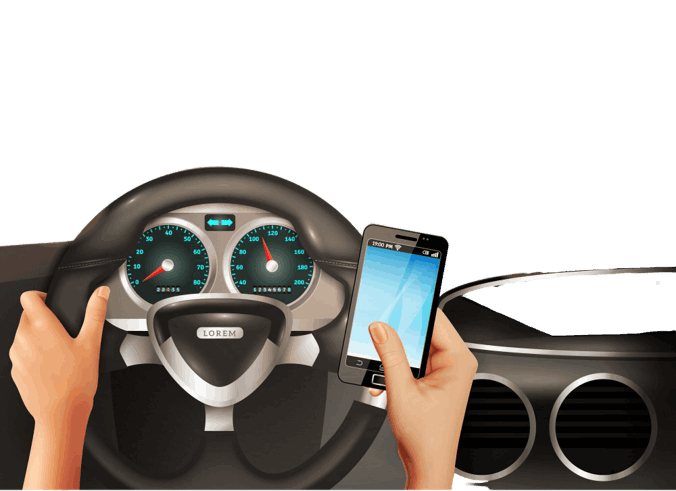

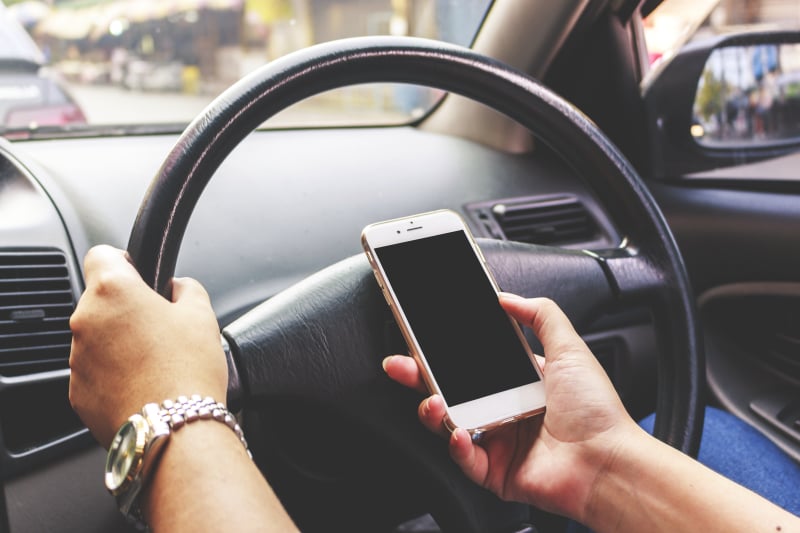
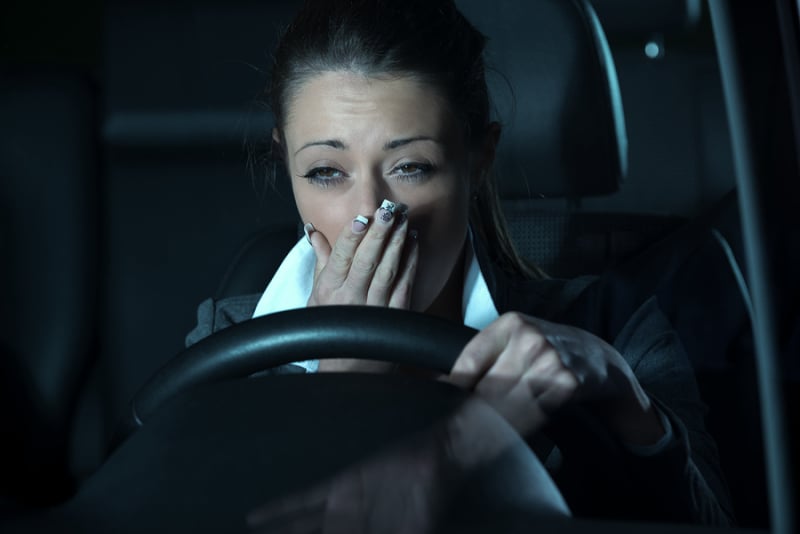
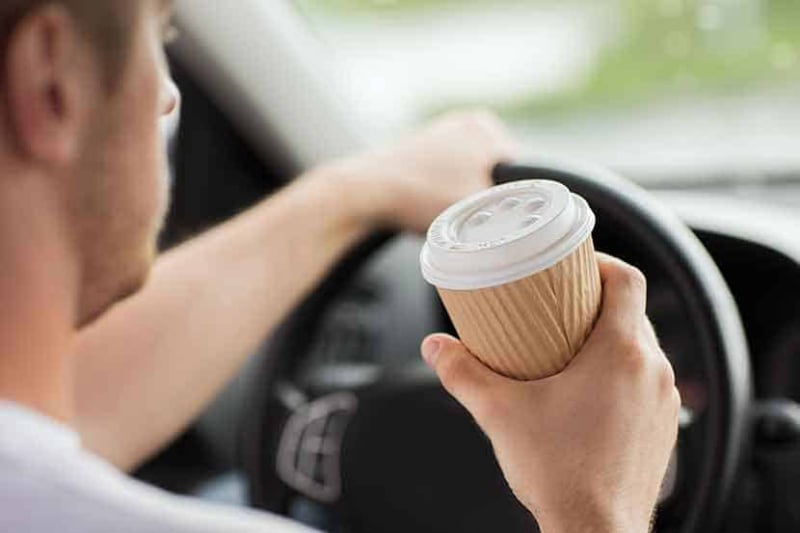
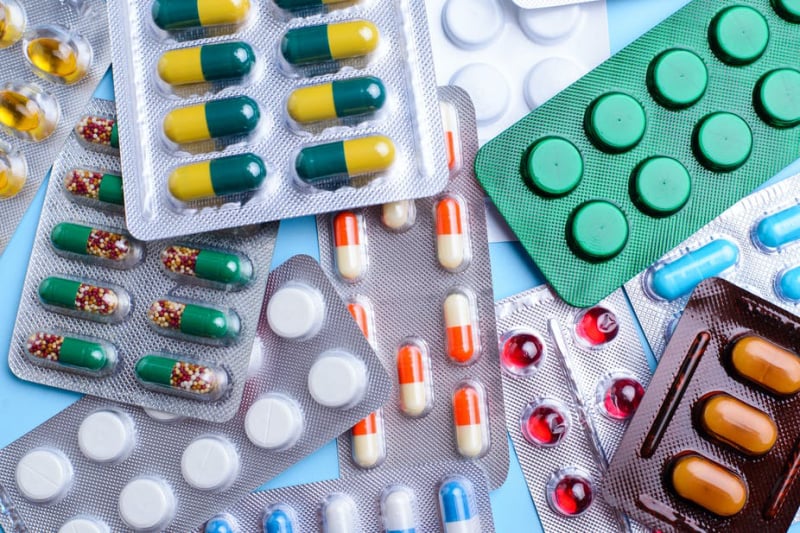

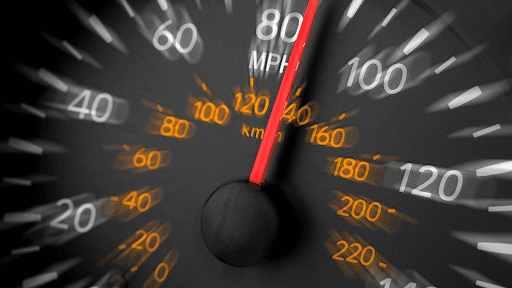

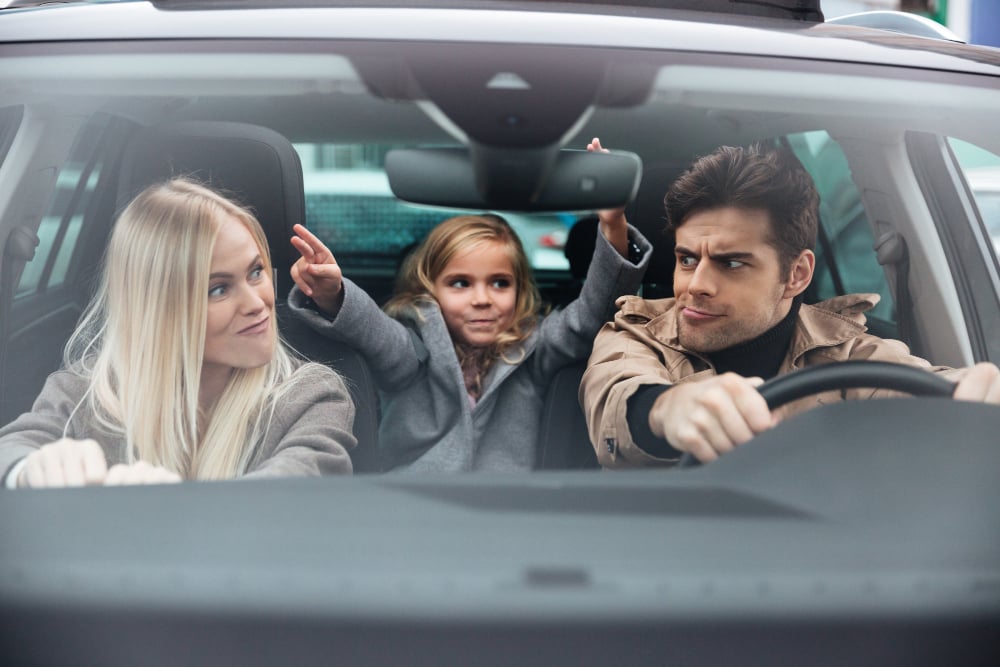
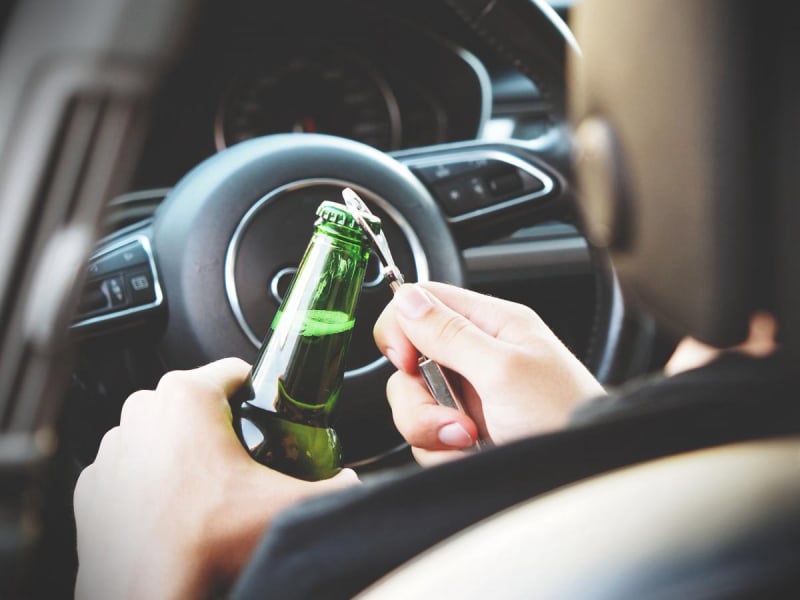
Using a Mobile Phone.
Statistically, it takes around 4 seconds to read just the most generic text message such as "Alright mate what you doing this evening?"
At 70mph you are roughly covering 31.5Mtrs (104 Feet) Per second.
So a 4 second text read will have allowed you to travel around 126Mtrs (416 Feet)
If you have a pupil that just really does not understand distance, it would be well served to stop the car in a safe place and pace out 126Mtrs.
Get them to turn around and look at where you car is parked and then explain to them that this is the distance they would have travelled on a Motorway at 70mph in just 4 seconds.
Now ask them if they would like to try it with their eyes shut?
Their answer will definitely be NO.
So now is the time to express to them about how long a generic text message takes to read and this is how long they might as well have been driving with their eyes closed for.
The penalty for using a hand held mobile phone while driving is £200 and 6 points on your licence.
If you are a new driver and have only had your license for less than two years, you will automatically lose your license if you receive six penalty points.
You can also be taken to court and face a maximum fine of £1,000, or £2,500 if you are driving a lorry or bus. You could also be banned from driving or riding.
It is illegal to use a hand held mobile device, sat nav, tablet, or any device that can send or receive data while driving or riding a motorcycle for any reason, including: taking photos or videos, scrolling through music playlists, using streaming services, and playing games.
THIS INCLUDES:
Stopped at traffic lights.
Queuing in traffic.
Supervising a learner driver.
Driving a car that turns off the engine when you stop moving.
Holding and using a device that's offline or in flight mode.
You can use your hands-free devices as long as you do not hold them. Hands-free access means using for example:
If you have a smartphone cradle, windscreen mount, dashboard holder or mat in your car, a Bluetooth headset, Voice command, a built-in sat nav.
However, the phone holder cannot obscure your view of the road.
You can use a device in you hand if:
You need to call 999 or 112 in an emergency and it's unsafe or impractical to stop.
You're safely parked.
You're making a contactless payment in a vehicle that is not moving, for example at a drive-through restaurant.
You're using the device to park your vehicle remotely.
You could also face 3 penalty points on your licence if you do not have full view of the road and traffic ahead or do not have proper control of the vehicle.
Studies have shown that someone who consumers alcohol will have a reduced reaction time. One study pointed to an average decreased reaction time of 120 milliseconds (just over a tenth of a second) being associated with a Blood Alcohol concentration of 0.08
So, when travelling at 70 miles per hour, a drunk driver would travel for an additional 3.5Mtrs (12 Feet) before reacting to a hazard.
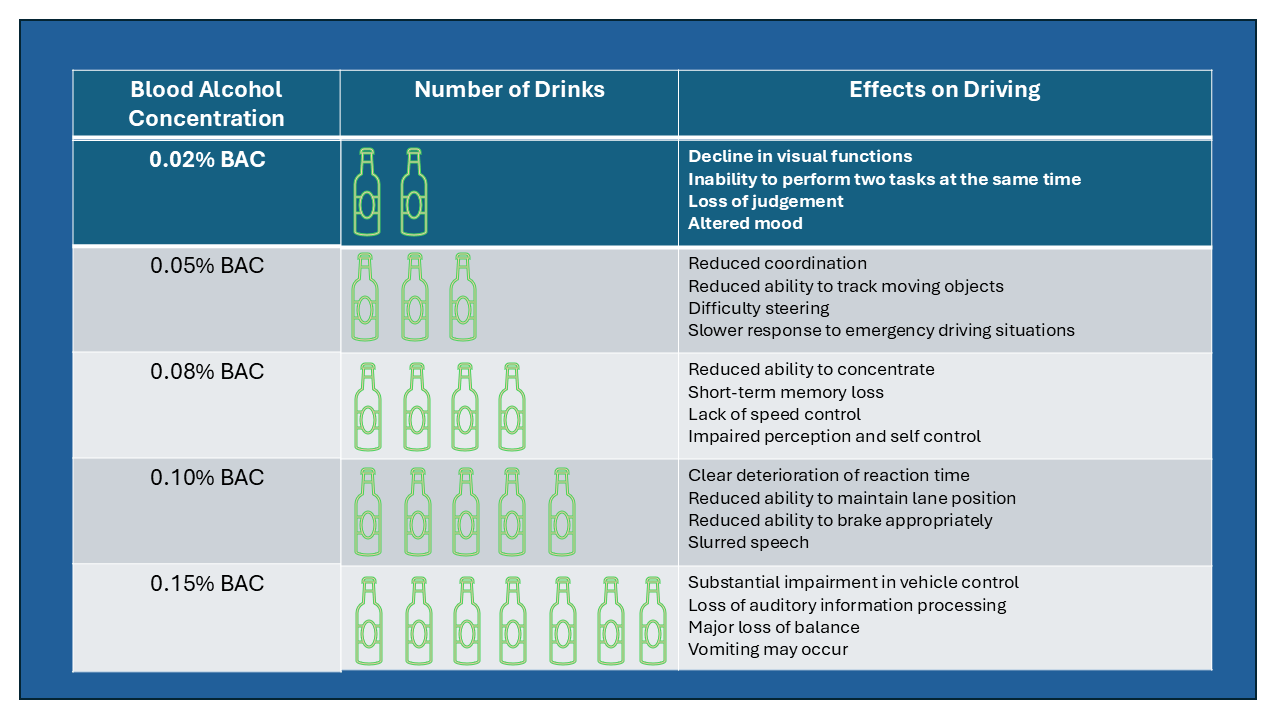
The legal for driving in the UK is 80 milligrams of alcohol per 100 millilitres of blood (mg/100ml) or 35 micrograms of alcohol per 100 millilitres of breath.
Alcohol can impair your ability to drive, even in small amounts. It can affect your judgment, coordination, and reaction time.
Drivers who drink up to the legal limit are six times more likely to be involved in a fatal crash than those with 0 mg/100ml.
Fatigue is a major cause of road crashes. and could be as dangerous as drink-driving
National Highways said fatigue is a factor in 13% of deaths and serious injuries between 7pm and 6.59am in the UK.
The Department for Transport reported that 18% of road deaths were caused by drink driving in 2022, while drug driving deaths made up 19% in the same period.
1 in 8 drivers admit falling asleep at the wheel!
Drivers are 20 times more likely to fall asleep at the wheel at 6am than at 10pm.
Worldwide, it is estimated that between 10% and 20% of all road crashes are fatigue-related.
Crashes typically involve vehicles running off the road or into the back of another vehicle.
They tend to happen at high speeds, because drivers do not brake before crashing, so the risk of death or serious injury is high.
A 2021 survey by The Zebra found that 52.5% of drivers admitted to eating while driving.
A 2019 Brake survey found that 60% of drivers had eaten or drunk while driving in the past year.
Risks
Eating while driving can be dangerous because it can:
Cause you to take your eyes off the road to reach for or unwrap food
Double your reaction time
Cause you to spill a hot drink on your lap or eat something greasy that causes your hand to slip on the steering wheel
Be just as dangerous as sending a text message or talking on the phone
Consequences
If you're caught eating while driving, you could be prosecuted and receive:
Three points on your license
A £100 fine
Statistics show convictions for driving under the influence of drink or drugs, increased from 41,457 in 2014 to 58,117 in 2022.
This represents a rise of 40%. in addition, drug driving is close to overtaking drink driving, becoming a major cause for concern for the police and local communities across the UK.
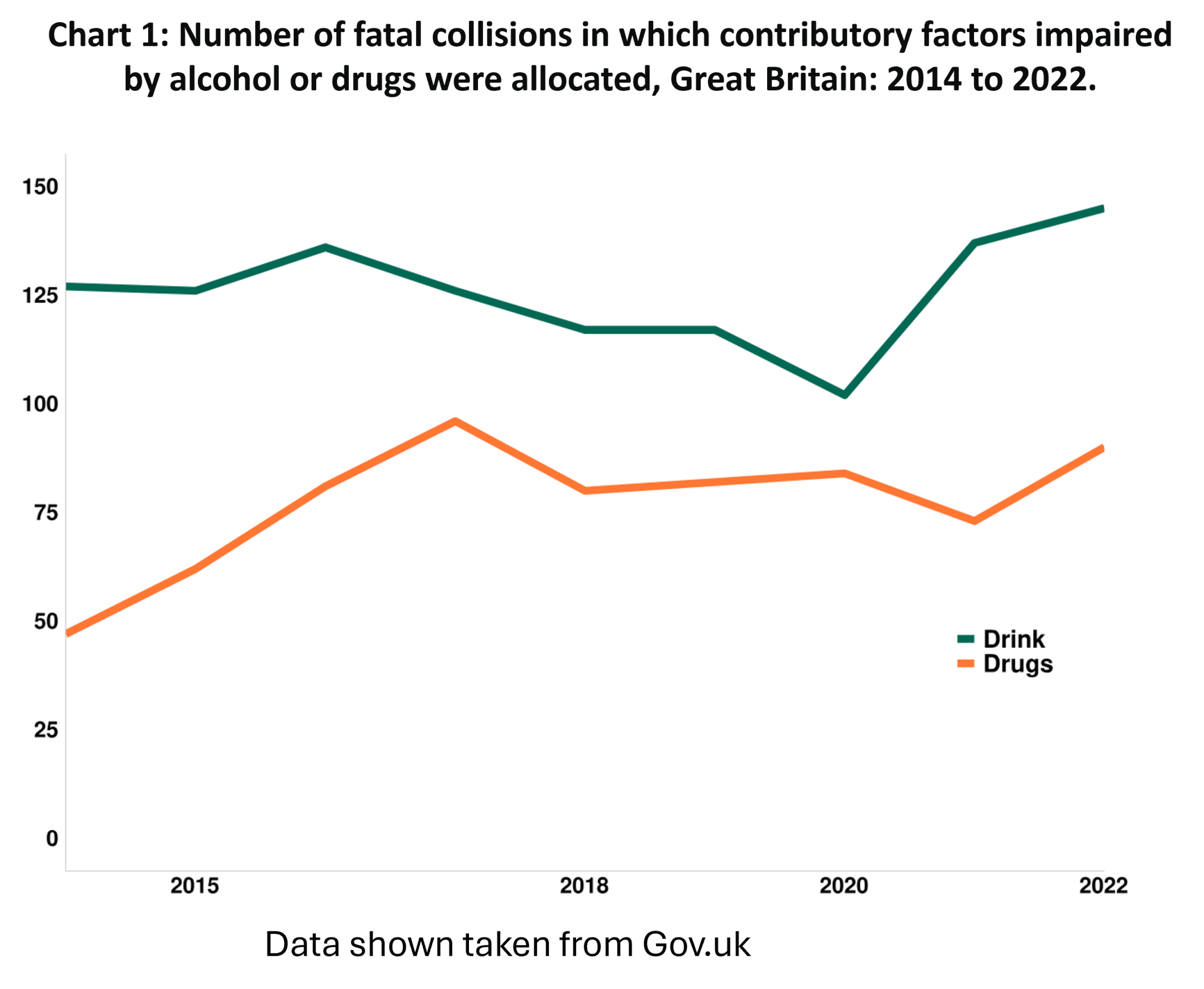
Listening to loud music while driving can be dangerous and increase the risk of a crash:
Impaired reaction time
Loud music can make it harder to hear important traffic cues and slow down your reaction time to stimuli in your peripheral vision.
Competing for cognitive capacity
Driving and listening to music both compete for your limited cognitive capacity.
Divided attention
When one of your senses, like your hearing, demands a lot of attention, less attention is available for other senses, like your vision.
Increased risk of dangerous collisions
Distractions like listening to loud music can increase the risk of dangerous collisions, including side-impact collisions, head-on accidents, rear-end crashes, and high-speed collisions.
Be aware of the type of music you listen to while driving. In general, research suggests that up-tempo beats can cause you to increase your acceleration and take more risks, while slower-paced music may improve your driving behaviour.’
Speeding on different types of roads
In 2023, 42% of cars exceeded the speed limit on 30 mph roads on weekdays compared to 48% on weekends.
43% on motorways on weekdays, compared to 48% on weekends.
And 9% on single National Speed Limit Carriageways on weekdays, compared to 11% on weekends.
Speeding and collisions
In 2022, 27% of fatal collisions were attributed to speeding or driving too fast for conditions.
Speeding and injuries
In 2022, 14% of collisions with serious injuries and 12% of all collisions were attributed to speeding or driving too fast for conditions.
Speeding and road deaths
In 2022, road deaths caused by speeding increased by 20%.
Speeding and public opinion
In a survey, 92% of drivers said speed limits are essential for road safety, but 34% said they sometimes or often drive faster than the speed limit.
Speeding and connected vehicles
Data from connected vehicles can be used to estimate the number of speeding drivers on any part of the road network.
Speeding and fines
In 2022, the Home Office reported that over 6,000 motorists were caught speeding every day, which was a record high.
The largest proportion of those killed in speed related collisions are those between 17 to 34 years old, 40% of all fatalities in collisions with at least one speed related factor assigned are in this age range (20% aged between 17 and 24 and 20% aged between 25 and 34).
The proportion of fatalities that occur in each age band decreases as age increases.
More than 69 per cent of UK drivers reported experiencing road rage in 2023, according to polling by Compare The Market – 12 per cent on a weekly basis.
London is the rage capital with 75.9 per cent of drivers admitting to it, followed by Nottingham.
The most common form of road rage is Tailgating – One of the most frequent forms of road rage is tailgating, where a driver follows the vehicle in front too closely, often in an attempt to intimidate or pressure them to move faster.
This aggressive behavior significantly reduces the distance needed to stop in case of an emergency.
Studies on gender and traffic safety say males under the age of 19 are the most likely to exhibit road rage and tailgate.
However, in a study to explore those who say they experience road rage more than four times a week, 34% were 18-34 years old and female.
Driving numerous passengers, especially if they're teenagers, can create a chaotic environment in the car, which makes safe driving impossible.
Passengers playing loud music, singing, fighting, or laughing create major distractions for the driver.
Even a single passenger can take your attention off the road if you're engaged in an intense discussion with them. Conversations require mental focus and, when they're happening in a car, your focus is stolen from the task of driving.
Children, babies, and pets in the car frequently require your physical attention—such as restraining them or handing them a snack or toy—which results in your hands off the wheel and eyes away from the road.
Clearly, you can’t avoid driving with passengers in your car, but you should be aware of how they're drawing your attention from the task of safe travel. Enforcing order in your vehicle isn't just for your safety—it also protects your passengers and others on the road.